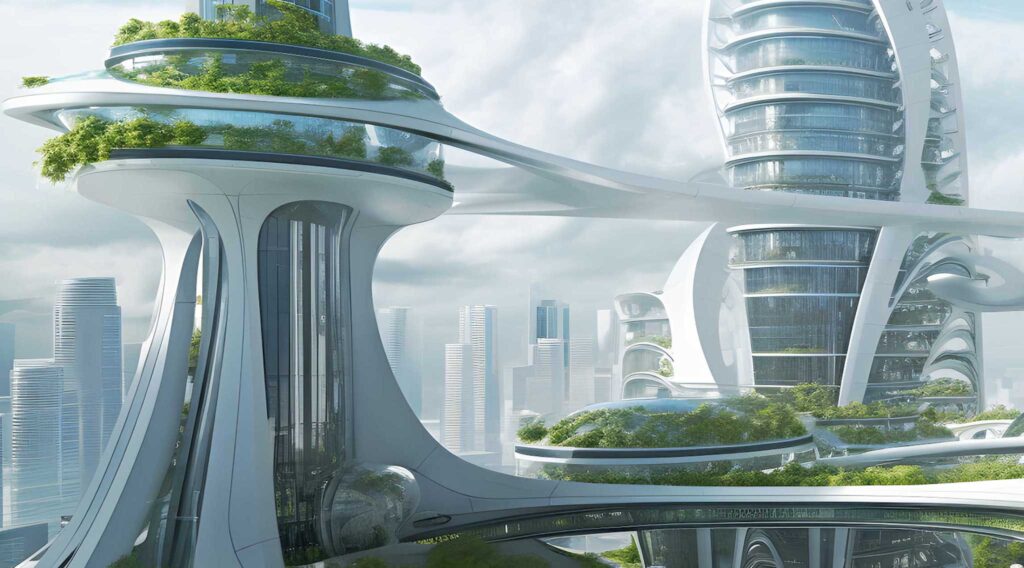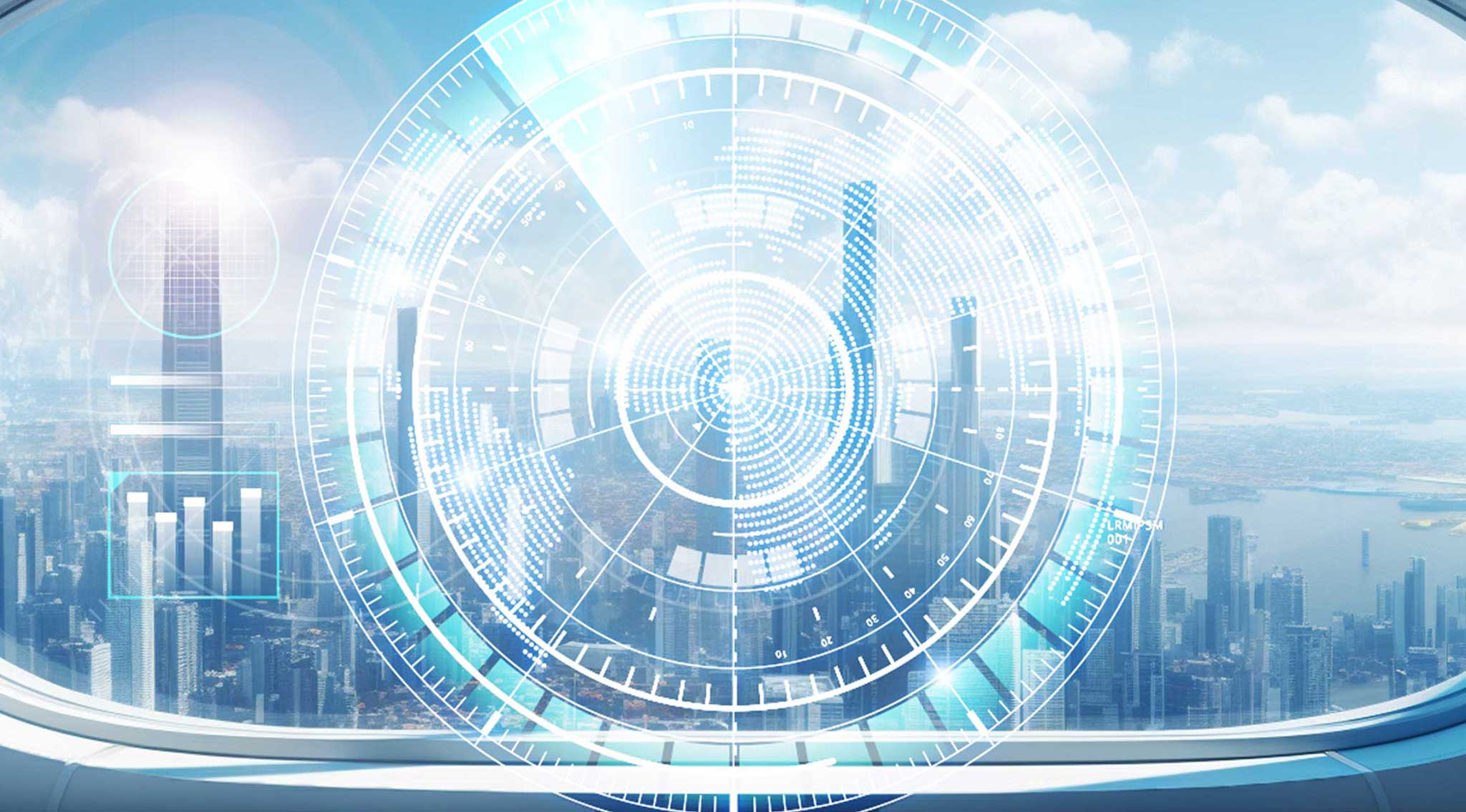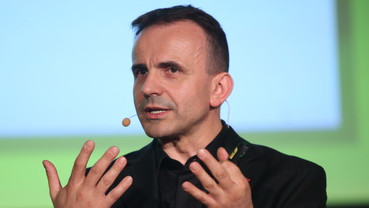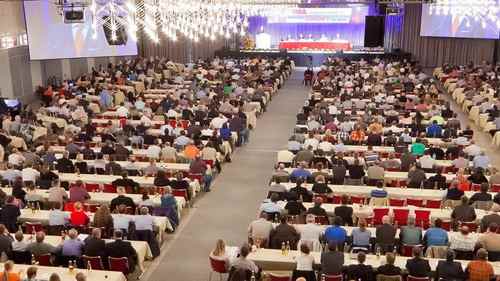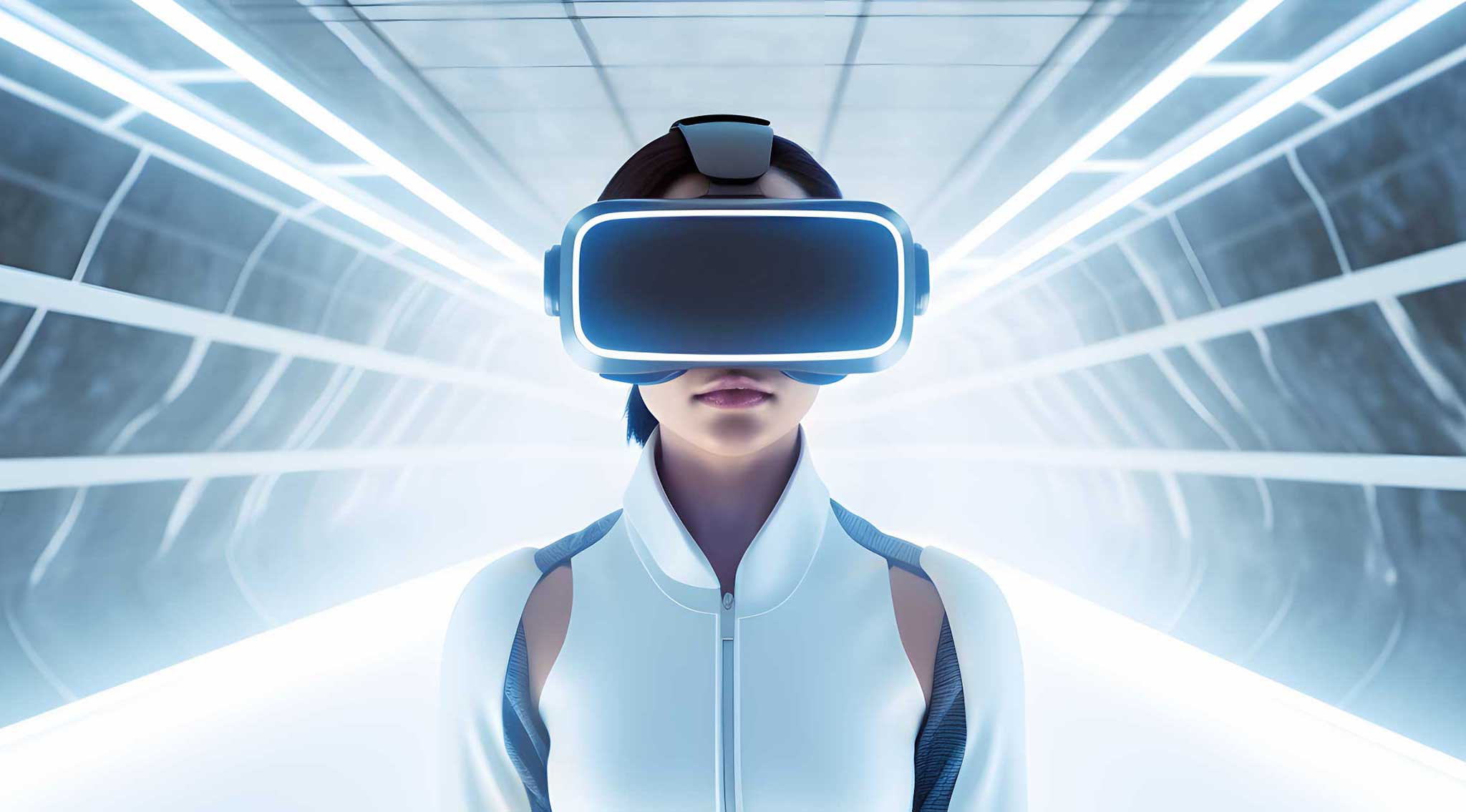Enno Däneke
At the beginning, most still thought the Corona pandemic would be a short crisis: once we have vaccines, we will quickly reach herd immunity and can then return to business as usual – Maybe with a little more home office. Well, it didn’t turn out that way. And even today, there is great uncertainty about the future course of events.
What might different post-Covid 19 pandemic scenarios look like? How will we live and work “after Corona”? And for which different social and political conditions are we already setting the course today? The answers to these questions are anything but certain. It is precisely in this uncertainty that we humans need orientation. We have to make long-term decisions every day.
To ensure that our decisions are future-proof, we need to anticipate future developments and develop solid assumptions about what is to come.
Scenarios have long been a means of futurology to contrast different possible futures. What for? Scenarios help you broaden your thinking. They perceive more. And can use the scenarios to review and evaluate how future-proof their strategy is.
I’m going to show you four very different scenarios about the future after the Corona pandemic and ask you an important question at the end. But first: the initial situation.
The starting position 2020-2025
Between the end of 2019 and the end of 2022, the Corona pandemic will have claimed about 6 million lives worldwide. These are the official figures – the number of unreported cases is probably significantly higher.
By the end of 2022, most of the world’s population will be vaccinated. The WHO classifies the situation from 2023 as a post-pandemic period. However, as a result of new mutations and vaccination breakthroughs in individual countries, spatially limited epidemics occur again and again.
Production capacities for vaccines are being massively expanded. Numerous highly effective vaccines exist, most of which can be adapted relatively quickly to new variants of the corona virus. Repeated vaccinations then keep new case and victim rates down.
Finally, Corona loses its terror. Covid-19 has become an infectious disease like many others. After the pandemic, we live WITH the virus. Daily life has hardly any restrictions.
However, our society and our working world will have changed noticeably. How, depends primarily on two factors:
- How severe and long-term will the pandemic’s impact be on the economy and prosperity?
- What basic human motivations most strongly determine political and social responses to the pandemic? Is it more the long-term “development motives” or the short-term “preservation motives”?
Living and working according to Corona: the four scenarios
Scenario 1: Hedonism
The Hedonism scenario is characterized by an economic boom and short-term oriented thinking and acting. This means that people have great financial opportunities and use them to act out rather short-term oriented motives. They are looking for ‘pleasure’ and ‘comfort’ above all else, but also ‘recognition’ and personal ‘gain’ after the Corona pandemic. Accordingly, the behavior of the people and the reactions of the politicians.
Societies are strongly hedonistic in the post-Corona years. Lockdowns, restrictions and social distancing are followed by an era of debauchery.
People try to leave illness, death and fear behind. The goal is to make the most of life. The pursuit of joie de vivre, enjoyment and sensual pleasure, in short: the realization of private happiness, is in the foreground. Tourism is booming. An event and fun culture has become established. Cities are the ‘places to be’ – urbanization has accelerated rapidly. Freedom is more important than other values. Liberal and liberty-oriented parties celebrate electoral successes.
The economy is booming – a veritable consumer frenzy has set in. People are saving less; on the contrary, they are spending money with their hands full. As 100 years before, people talk about the ‘Golden 20s’. While public debt initially rose to record levels, strong economic growth is now enabling it to be reduced rapidly.
People strive to expand their possibilities. Enhancement technologies are used to overcome performance limitations and to compete with others. Status symbols have once again become much more important than intangible values. In particular, wearables, smart clothing and smart implants are in high demand. The cyborgization of humans is beginning. Anti-aging measures enjoy great popularity, because the preservation of youthfulness and beauty are important ideals.
The new materialism pushes ecological and social problems into the background. Selfishness and a “after me, the flood of meaning” mentality are the downsides of the upswing. Short-term thinking and action accelerate the climate crisis and environmental destruction. The impending catastrophe is blanked out – freely according to the motto: You only live once.
Strong economic growth and high consumer demand from private households have led to increased production and employment.
Digitization
The Corona pandemic has given digitization an enormous boost. Companies and employees are much more open to it. Investments in digitization have been massively increased. Accordingly, the development of digital skills has become much more important, especially among older employees. Digital is now normal. What can be digitized will be digitized.
Flexibilization
This has also created new freedom, especially in the area of making work more flexible. Flexitime and trust-based working hours are the preferred working time models.
Entrepreneurization
The trend toward self-employment has increased. Freelancing or founding a start-up are considered hip.
Work-life balance
For people, the focus is on a good work-life balance. Performing, being successful and earning money are just as important as having fun, traveling and consuming.
The prevalence and intensity of home office use, as well as working from locations other than the traditional workplace, have increased massively in the world of work.
New Skills
Further education and the acquisition of new skills are a matter of course and are regarded as a basic prerequisite for securing one’s own material prosperity in the future and being able to lead a good life. An additional driver here is the fear of job loss due to automation.
Cooperations
There is strong competition between companies. Despite a high level of digitization and the rise of digital business models, the platform economy has not gained widespread acceptance. Cooperations and strategic alliances are only entered into where necessary.
Working life is also characterized by competition rather than team spirit. The gamification of digital work processes promotes this development.
Corporate Social Value
Principles such as Corporate Social Value or Purpose, like economic activity in general that is geared to environmental and social sustainability, have almost completely lost their significance in the wake of radical neo-liberalism. In addition to a good work-life balance, the main criteria for choosing an employer are salary and opportunities for advancement.
Scenario 2: Nationalism
The Nationalism scenario is characterized by an economic crisis and short-term thinking and action. The dominant human motives of this scenario are ‘security’ and ‘connection’ with a very strong expression and ‘recognition’ and ‘profit’ with a strong expression.
Debt has risen to record levels in most states as a result of the Corona pandemic. The insolvency of numerous companies has led to a high unemployment rate and increasing consumer restraint. People now only buy what they really need to live.
Lower tax revenues and increased social spending have made states increasingly unable to act. Investments had to be cut back sharply.
In the mid-20s, the world economy is in a downward spiral. There is no end in sight to the crisis.
The resentment of broad segments of the population, especially toward elites, the wealthy and the crisis winners, continues to polarize societies. A strong “us” versus “them” sentiment is emerging, including toward people with immigrant backgrounds, members of the LGBTQ* community, and members of other minorities.
Populist and national conservative parties have experienced an enormous upswing and won elections. Numerous countries are now ruled autocratically. Democratic institutions are challenged and their decisions openly questioned or even disregarded. Opposition voices from science and the media are suppressed and their statements declared as lies.
Protectionism and nationalism have massively slowed down globalization. International relations are characterized by tensions. By shifting production back on a large scale, attempts are being made to put people back to work. However, this reduces the productivity of the economy. Prices rise while wages stagnate or fall.
Germany, as a country poor in raw materials, is rapidly losing innovative power, especially compared to Asian countries, and the EU as a political power factor is losing importance even faster than it would have anyway.
The societies are strongly hierarchical. People work hard to provide a modest living for themselves and their families. Above all, supposedly ‘simple’ solutions and explanations suggest a state of stability, security and order or hold it out as a vision for the near future. Despite great efforts, the pace of technological progress is slowing significantly. Global problems, in particular the ongoing climate change, have moved out of focus.
New jobs are to be created through the relocation of production and the conversion and expansion of the agricultural sector. Industry, manufacturing and the skilled trades are gaining in importance over the service sector.
Digitization
The Corona pandemic has given digitization an enormous boost. Their importance remains high. On the one hand, digitization is an important tool for boosting productivity, especially in industry; on the other, care is taken to ensure that it does not cost any additional jobs. Building digital skills, especially among the low-skilled and long-term unemployed, has become much more important. At the same time, digitization offers companies the opportunity to measure and control work performance. One important project is achieving digital sovereignty. Data exchange across state borders has decreased.
Cooperations
Digital platforms and ecosystems play an important role nationally in facilitating collaborations between companies with the aim of boosting the economy, increasing production and creating jobs. In general, cooperation models are seen as an important instrument for strengthening state-led economic systems.
Automation
Automation in industry continues to advance. At the same time, the government is making sure that employees build up the necessary skills. Education is no longer free. Humanities subjects play a minor role. Training occupations in the with a directly measurable benefit are subsidized by the state.
Entrepreneurization
The majority of citizens seek security in salaried employment, while the number of self-employed and start-ups has dropped significantly during the crisis.
The work structures are strongly hierarchical. Employees enjoy few freedoms. The classic 9-to-5 job is experiencing a renaissance. Flexible working models tend to be the exception.
Corporate Social Value
Solidarity and social responsibility are, to a certain extent, lived values – to make the nation great again and to provide security and stability to those who are desired and faithful to the line. There is a great deal of competition between employees, however.
Work-life balance
Having work in order to be materially secure does not allow individuals to be choosy in their choice of employer. At best, a good work-life balance is on the horizon for those who move up. Despite all efforts, economic and labor crises persist.
Scenario 3: Idealism
The idealism scenario is characterized by an economic crisis and long-term thinking and action. The dominant human motives of this scenario are, first and foremost, ‘connection’ and ‘recognition’ but the urge for ‘progress’ and ‘pleasure’ also play a role.
Debt has risen to record levels in most states as a result of the Corona pandemic. The insolvency of numerous companies has led to a high unemployment rate and increasing consumer restraint. People now only buy what they really need to live. Regional suppliers in particular are supported.
Lower tax revenues and increased social spending have severely limited the states’ ability to act. Investments had to be cut back sharply. In the mid-20s, the world economy is in a deep crisis. The dream of a better world, which seems possible but cannot yet be realized in times of crisis, has given rise to a new idealism. Ethical action and ideal values are in the foreground.
The principle of solidarity has become much more important. Social commitment in one’s own environment, i.e. helping one’s neighbor wherever possible, is very popular. The potential for social conflict has fallen sharply. Differing opinions do not polarize, but seek dialogue.
Consumerism, modesty and compassion for others define life. The interest in art, culture and metaphysics has risen sharply. The humanities are experiencing a new flowering. Retreat into the private sphere, escapism, but also growing interest in political issues are important trends.
Many who can’t find work, or are struggling to make ends meet with numerous, changing (part-time) jobs, are continuing their education. However, the majority of people are convinced that better times will come again and want to be prepared to help shape and realize what is now still a vision. The image of the future is not shaped by individual and material desires, but by supra-personal goals, specifically: the fundamental reshaping of the world – politically, socially and economically.
Digitization
The Corona pandemic has given digitization an enormous boost. Their importance remains very high. It is an essential prerequisite for a radical flexibilization of work.
Cooperation
In the wake of the economic crisis, many people have lost their jobs. For the time being, therefore, the 20-hour week has been introduced, making it possible to put more people to work. For idealistic reasons, most are willing to share a job and give up part of their salary in return.
For the same reason, business collaborations have also increased. Instead of competing, they work together to add value to society.
Automation
Investments in the automation of processes were scaled back significantly.
Work-life balance
In principle, the work-life balance is high, but it is not a value in itself, but a consequence of the restructuring of work. A large proportion of employees use the free time they gain to further their education and acquire new skills. Lifelong learning is not seen as a necessary evil, but as a privilege.
Flexibilization
Flexible working time models are standard where possible. Many people work from home. Project-based work and collaboration in virtual teams have increased significantly.
Entrepreneurization
Despite the crisis, people are still venturing into self-employment or founding a start-up. The state now makes this possible quite unbureaucratically. The focus is less on profit and expansion than on the ideal of social responsibility. The goal is to provide tangible benefits, solve problems and make people happier.
New Skills
Social skills have become much more important. Free time is increasingly invested in childcare and/or care and nursing of relatives. Work for the common good enjoys high recognition.
Corporate Social Value
The concept of “working in order to consume” – or, conversely, “consuming in order to endure working” – is also no longer conceivable for the future.
Scenario 4: Activism
The activism scenario is characterized by an economic boom and long-term oriented thinking and action. People want ‘progress’ and ‘security’, but not only in the here and now, but also for the future. The desire for commonality through ‘connection’ with others and receiving ‘recognition’ is also important.
With the end of the pandemic, the economic recovery has been faster and much stronger than initially assumed. At the same time, issues that had already been the subject of an increasing number of young protests before the pandemic came back into focus, first and foremost climate change.
The commitment of young people does a lot of convincing and also mobilizes the older generations: For a sharply rising proportion of people, a simple “business as usual” is no longer acceptable. A broad civic activism is forming, integrating more and more social milieus and age groups. Global awareness of the impact of one’s actions on the environment, on other people and on future generations is increasing. It initiates an ecological and social restructuring of the global economy.
NGOs contribute to the further development of global governance and the international democratization process. Democratic structures are strengthened, autocratic systems are voted out or overthrown. Supranational structures are being expanded, and the United Nations is gaining in importance.
Green parties are in government in more and more countries, or their positions are being adopted. Most people actively and charitably pursue ethical and sustainability-oriented goals – locally and globally. Political consumerism across the board – including targeted boycotts – is forcing companies to rethink. Consumer power has never been greater.
Whether human rights, gender roles, development goals, environmental issues, or animal welfare, people are achieving relevant legislative changes to accelerate social-ecological transformation. High CO2 taxes can drastically reduce the environmental footprint of citizens and businesses. There is an investment boom in the field of green technologies. Technological progress is advancing rapidly.
Digitization
The Corona pandemic has given digitization an enormous boost. Its importance remains extremely high in the following years.
Automation
Process automation increases productivity, efficiency and sustainability in all industries. CO2 emissions can be greatly reduced through higher efficiency. Sustainability strategies promote the use of future technologies such as artificial intelligence, robotics, and sensor technology, for example in production, logistics, and the construction industry.
Flexibilization
At the same time, the digitization boom has enabled the radial flexibilization of work. Trust-based working hours and home offices are widespread.
Cooperations
Companies are cooperating to a high degree in order to fully exploit the potential of digital business models. Project-based work and collaboration in virtual teams have increased significantly. The platform economy is a key driver of economic growth.
Entrepreneurization
The state spends less than it takes in. Strong economic growth and record tax revenues enable many countries to pay their citizens a basic income. Basic income offers more security, less existential angst and more freedom. In this way, everyone can pursue work that is meaningful to them, even if it is less well paid, or work only part-time to do additional volunteer work. Social professions have thus become much more attractive again. There has also been a sharp rise in the number of self-employed persons and company founders.
Corporate Social Value
Corporate social value is the mission of the hour – whether choosing an employer or starting a business. Work is synonymous with the responsibility to solve economic, social and ecological problems.
Work-life balance
Performance and success are positive values, because they mean working concretely to improve the world. The concept of work-life balance therefore takes a back seat, even though everyone can take the free time they need. But idleness is not an attractive option for most – in the face of major global challenges. Free time tends to be used for private projects, social engagement and continuing education.
New Skills
Lifelong learning and the acquisition of new skills have become much more important. Communication skills, problem-solving skills, empathy, self-management, teamwork skills and a willingness to learn new things are high on the list.
Use the scenarios for your future
As you can see: four very different scenarios of what our world could look like in five to ten years – with very different consequences.
At the beginning, I announced an important question to you. It is superficially simple. But: If you are entrepreneurial or like to take control of your life, you need to have a clear answer. Because it determines all your decisions. What are your personal assumptions about the future after the pandemic? Only when you are transparent about your assumptions about the future and honest with yourself about the degree of uncertainty can you make future-robust decisions.
If you want to continue using the scenarios, there are a few more questions:
- Which scenario is the most desirable for you personally? Which holds the greatest opportunities for your company? What can you do to help increase the likelihood of this scenario?
- Which one, even if you don’t like it, do you still need to be prepared for?
- How do you align your strategy with the scenarios?
Also, think the scenarios further, broader and deeper: what do they mean for your industry? For your company? And don’t forget: What developments do you yourself expect? What are your assumptions for the future?
Bring more future into your decisions!
Numerous factors determine what the future will look like: Successful companies observe these trends and systematically charge their vision and strategy with the future.
Follow these links as well:
► The Future Strategy Program for SMEs
► Free video crash course THE FUTURE OF YOUR BUSINESS
► BUSINESS WARGAMING for robust business and future opportunities
► KEYNOTES by Pero Mićić for your employees and customers
Have a bright future!

